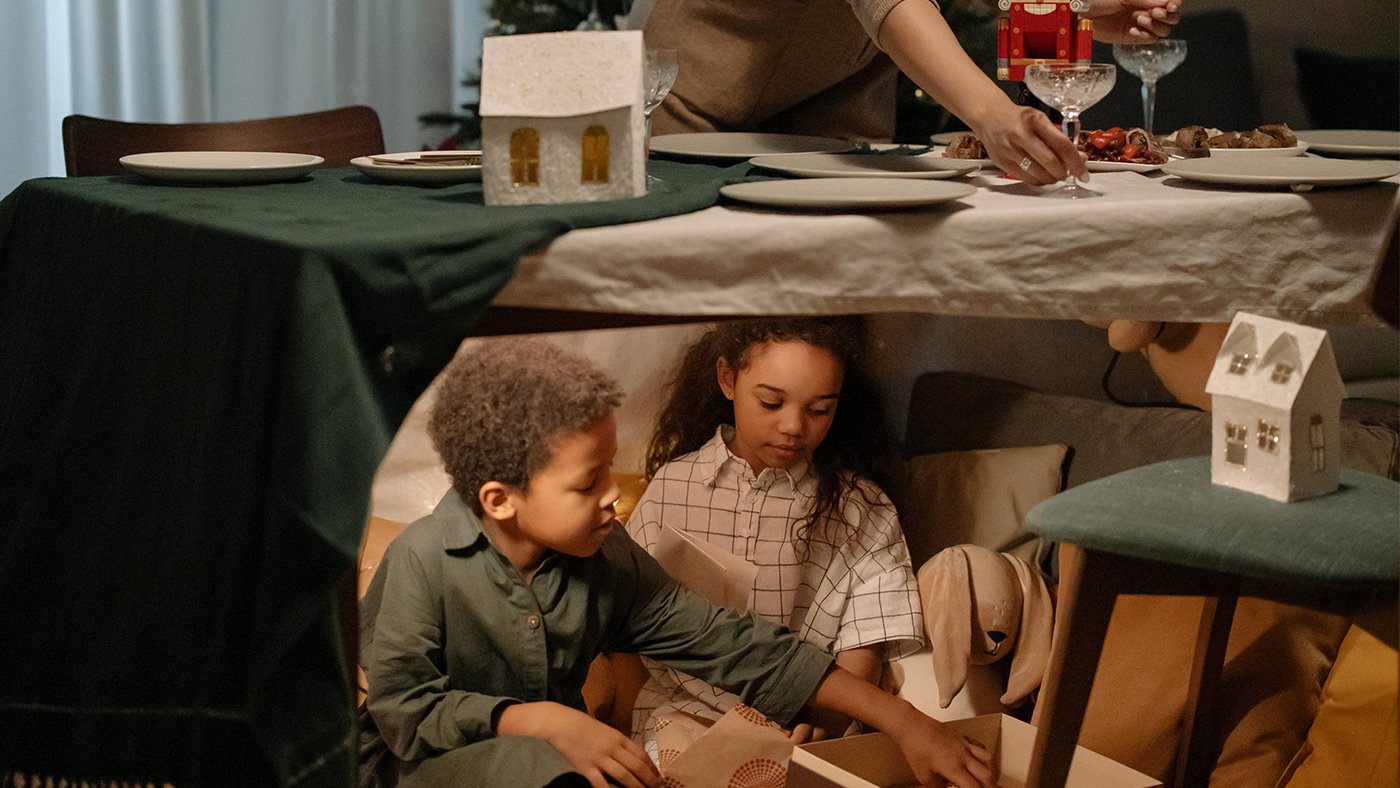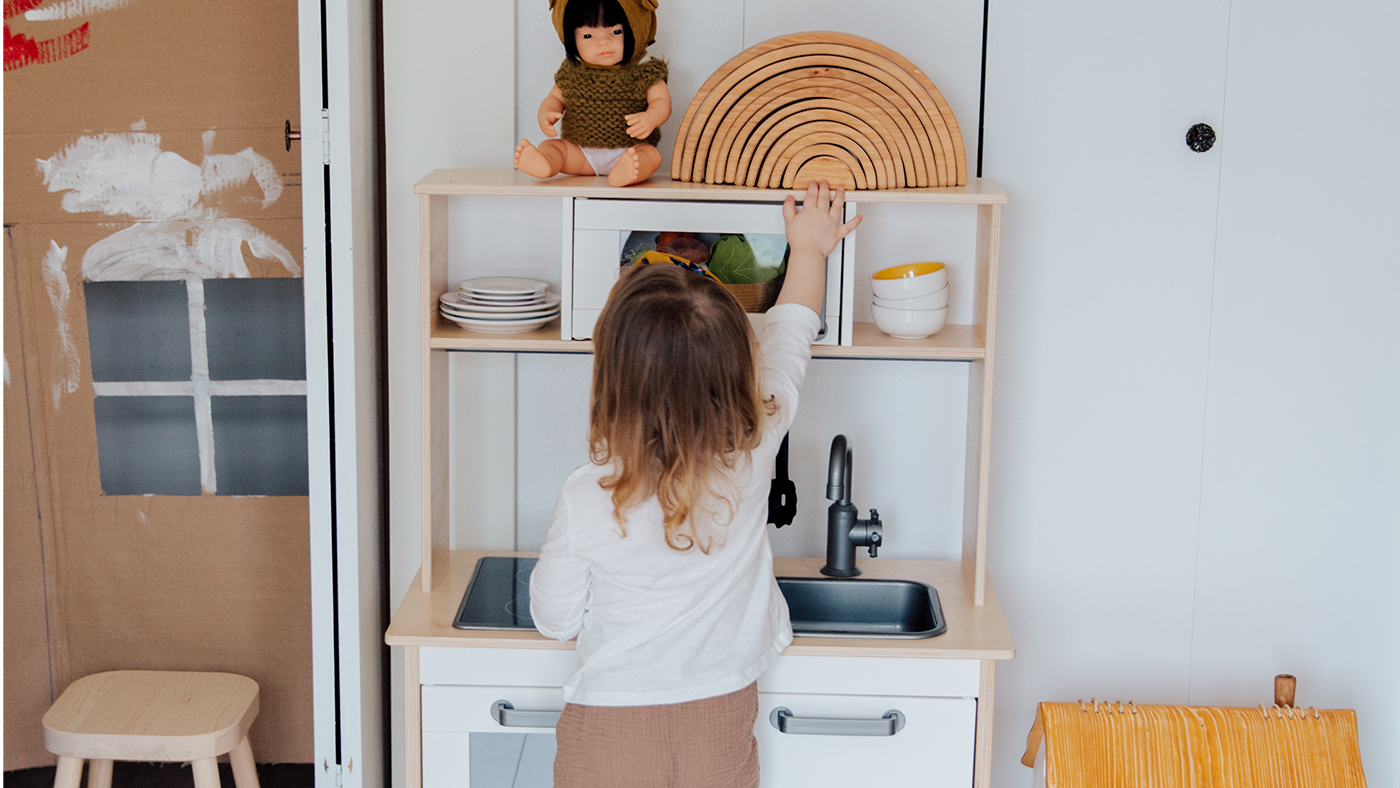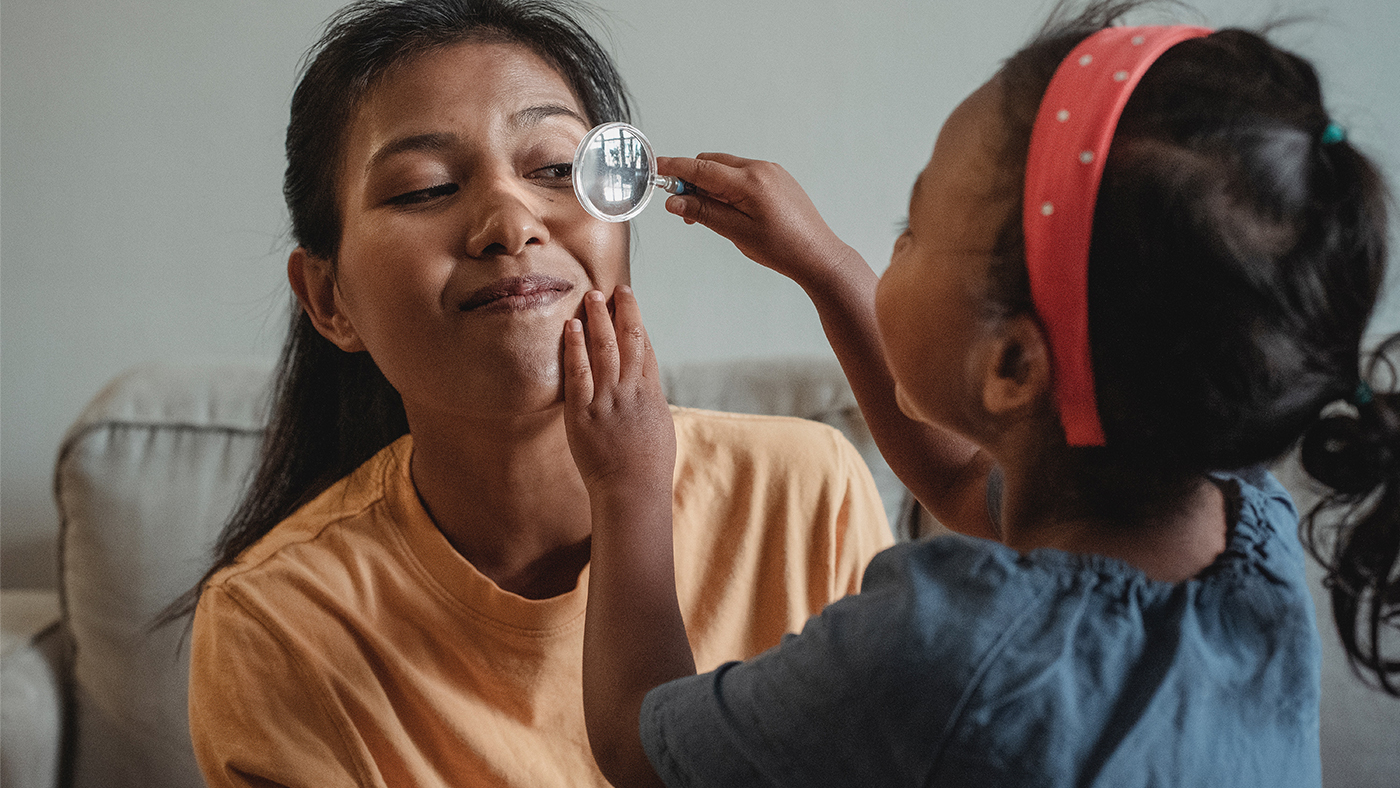Who's on the phone? Pretend play and executive functioning
- Cognitive,
- Brain Development,
- Pretend Play

If your toddler holds a toy brick to their ear, speaks for a moment, and then hands it to you, you probably hold the brick to your ear and immediately start a conversation with the person on the other end of the ‘phone’. I have lost count of how many imaginary cups of tea I have drunk or pretend cakes I have eaten over the years! We expect our children to pretend and expect to be brought into their play, pretend play is amazing and supports children’s development in many ways. In this blog, I am going to focus on the role of pretend and fantasy play in supporting cognitive development.

What are executive functions?
The Harvard Center on the Developing Child describes executive function as the ‘brain’s air traffic control system’ [1]. When we talk about executive functions, we are talking about a set of skills that helps us to think about problems and plan and to carry out actions. Executive function skills include being able to ignore things that might distract us, wait before doing something i.e., control our actions, plan, and carry out instructions, or a plan that has multiple steps.
Executive function skills help us to think about different information at the same time in order to solve a problem, help us to focus on the information that we need and help us to stop ourselves from doing something, for example, when waiting for a turn. Babies are born with the ability to develop these skills, but they need lots of different experiences to develop them and these skills continue to develop during childhood and into adolescence.
Scientists believe that practising helps children to develop executive functioning and they will need repeated experiences to develop and strengthen the connections in their brain that support these skills. Pretend play is thought to have a role in supporting this development, so pretending with your child could be one way to help them to develop their executive function skills.
Pretending and representing
When your child first starts to pretend that an object is something else, the objects will often have some features in common. Their block ‘phone’ might be a similar shape to the phone that they have seen you use. However, pretending still involves some important thinking skills and this early pretending is an important step in their development. When your child pretends one object is something different, they put the identity of the actual object to one side and think about what the object is representing in their play. Also, when playing with others they consider the thoughts of someone else, so in this play, they are demonstrating an awareness of their thinking and that of you and their other playmates. [2]

Your child will gradually include more make-believe and fantasy in their play, with characters from their imagination starting to take a role and stories being made up and adapted from the stories that they have heard or seen. Some researchers found that this fantasy play supports the development of executive function. They suggest that in order to pretend a child needs to maintain their attention on their fantasy, use their working memory to think about scripts for their play and stop and return to play if interrupted [3]. All these aspects of being involved in imaginative play help them to use and practise their executive function skills. And, when looking at executive function skills, they found that children who were more involved in imaginative play had higher executive function skills than those who were not.
Let's pretend!
Research seems to show that pretending helps your child to think, particularly when they follow and develop their ideas so what can you do to support your child’s pretend and fantasy play?
- Read stories, these will give them ideas.
- Go to different places, give your child experiences of different places that they can use as ideas when they pretend.
- Have a selection of objects and fabric that they can use in their play. Younger children might need more realistic props, but as they get older things that can be lots of different things will encourage them to pretend.
- Get involved but don’t take over, follow your child’s lead and join in with their play if they include you.
- Give them time, when you can, to get really involved in their imaginative play so that they can develop ideas as they play.

Enjoy watching your child’s imaginative play develop, and next time you are having a conversation on a toy brick mobile phone think about how you are helping your child to develop their thinking skills!
References
[1] Center on the Developing Child. What is Executive Function? How Executive Functioning Skills Affect Early Development (harvard.edu)
[2] Goswami, U. (2020) Cognitive development and cognitive neuroscience. The learning brain. London: Routledge.
[3] Thibodeau-Nielsen, R.B., Gilpin, AT, Nancarrow A.F., Pierucci, J.M & Brown, M.M. (2020) Fantastical pretense’s effects on executive function in a diverse sample of preschoolers. Journal of Applied Developmental Psychology. 68